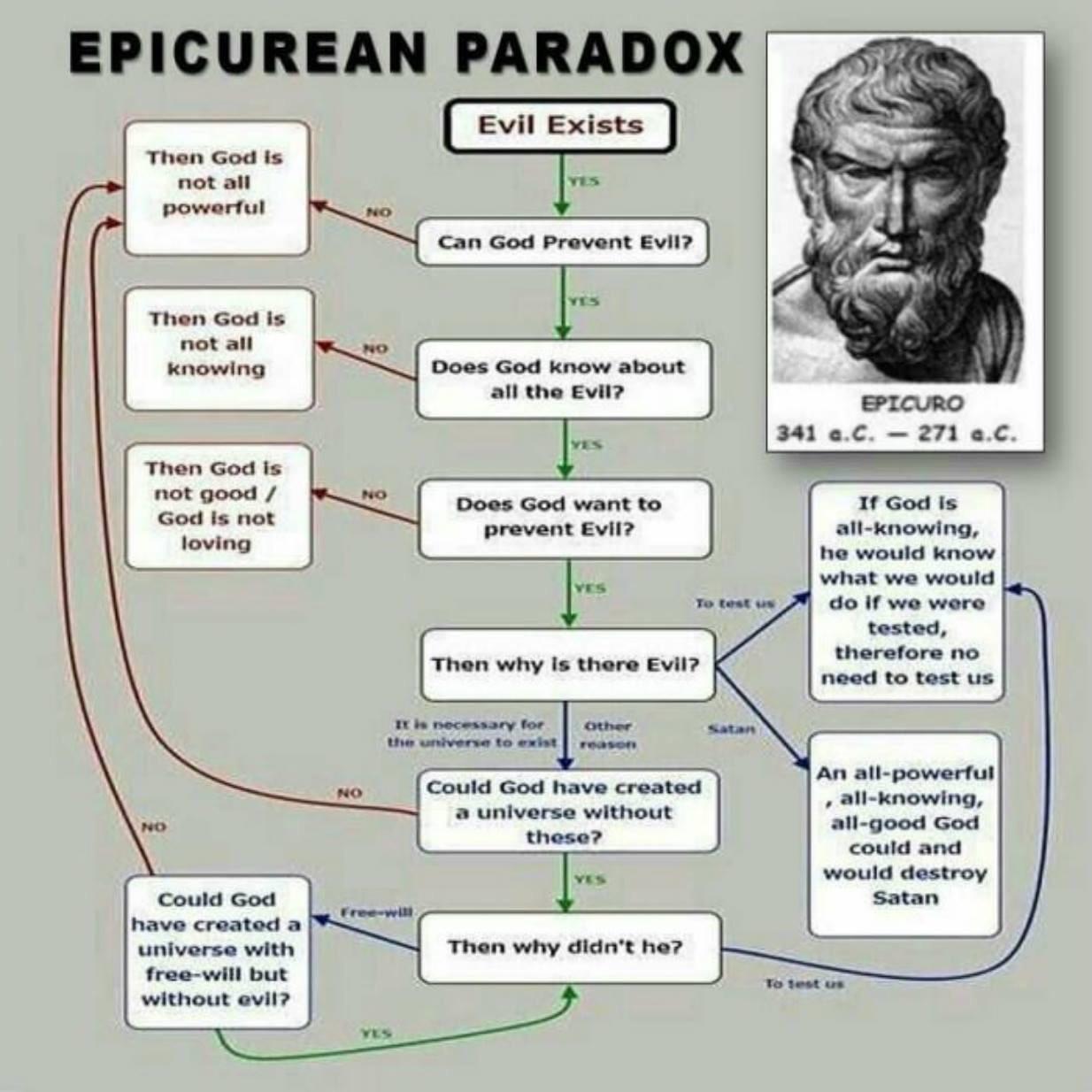

Yes yes. Let’s continute to use energy sources which are limited in terms of available but necessary resources and cause highly problematic by-products. It has been going on so well so far. Hasn’t it?


Yes yes. Let’s continute to use energy sources which are limited in terms of available but necessary resources and cause highly problematic by-products. It has been going on so well so far. Hasn’t it?


Or Islam, Judaism, Hinduism or any other major religion.
But no, suddenly I am the maniac for believing that – in reality – we are pink elephants, hopping on the moon and imagining life as we believe it to be true. No one can prove I am wrong. But uh oh, sky grandpa mad.
(/s I don’t believe anything. Just making a sarcastic point.)


Here is a nice visualisation of the logical paradox:



Wicca (English: /ˈwɪkə/), also known as “The Craft”,[1] is a modern pagan, syncretic, earth-centered religion.


Isn’t the firey interpretation popularized by Dante’s Inferno?


Fear of the unforknowable.


The petition doesn’t seem to be active, i.e. signable, right now.


The only reason to use AI in programming is to simplify C++ error messages.


It’s impossible to trust any sources these days because there are hidden agendas. […] No amount of “scientific literature” can contradict actual, basic, fundamental science about who we are and what we are supposed to eat. Anyone who does has an agenda.
Sounds more like, “I don’t like it, so it must be an agenda”.
If you have issues trusting science we won’t come to an agreement here. Having a biased view and choosing what you want to believe, despite contradicting evidence, is building an illusion and not having an accurate picture of reality.
Note that research on that topic has not just popped up in the last couple of years. Also you may take a look at other cultures for hands-on counterexamples, e.g. some monks who live and have lived their whole lifes without consuming animal products.
The fact remains: we are omnivores
I wonder how you decide what a “fact” is, since you have issues trusting the work of scientists.
Anyway:
The fact also remains that digestion capabilites, i.e. being able to eat both plant and animal matter, don’t necessarily impose dietary recommendations.
What you need to survive is a set of nutrients your body can digest. In which form they come, is less important.


Humans need at least some meat to survive. […] It causes long-term, serious harm to people who do not supplement their diet with at least some meat. […] completely cutting out meat is bad for you.
That is not correct.
Advocating a vegan (or even vegetarian) diet is ignoring science and how our bodies function. […] Pure veganism is a cult that ignores science, diet, and common sense.
To the contrary. It is very much supported by science. Are you interested in the scientific literature? I’ll happily share.


True, increased demand for meat is one of the driving factors of ecological malpractise as it’s found in the meat industry.
Plant based diets and a lifestyle free of animal products provide a more sustainable and ecologically beneficial alternative. As does reducing the overall world population of course.
In that case you could pay tuem for their USB A plug-in service.


Ok boomer.
You are literally wrong. Nice article, don’t see how that’s relevant though.
Could it be, that you don’t know what “intelligence” is? And what falls under definitions of the “artificial” part in “artificial intelligence”? Maybe you do know, but have a different stance on this. It would be good to make those definitions clear before arguing about it further.
From my point of view, the aforementioned branches, are all important parts of the field of artificial intelligence.
I totally agree with Linus Torvalds in that AIs are just overhyped autocorrects on steroids
Did he say that? I hope he didn’t mean all kinds of AI. While “overhyped autocorrect on steroids” might be a funny way to describe sequence predictors / generators like transformer models, recurrent neural networks or some reinforcement learning type AIs, it’s not so true for classificators, like the classic feed-forward network (which are part of the building blocks of transformers, btw), or convolutional neural networks, or unsupervised learning methods like clustering algorithms or principal component analysis. Then there are evolutionary algorithms and there are reasoning AIs like bayesan nets and so much much much more different kinds of ML/AI models and algorithms.
It would just show a vast lack of understanding if someone would judge an entire discipline that simply.


Cheers to that. Being welcoming and forgiving with new users or just ones who don’t know yet how to state their problem better, is a must. Assholes, like those elitists you spoke of, are not only unique to the Linux bubble, but are a sickness spread through all kinds of volunteer-based software related streams. I mean, just take a look at stackoverflow or forums and github pages of some open-source projects.
I can understand if someone is annoyed by insufficiently detailed problem threads, if they see that very often, but don’t take that out on the user, because that would be the best way to deter people from using that project. And also because it’s super unhelpful and inconsiderate.
That doesn’t mean serving someone everything on a silver plate and not expecting anything from the user. It’s okay to expect more involvement of the user to solve their own problem. However, do it in a nice way. Some mere hints, even if someone is not at the capacity to completely help, can go a long way.
As you nicely put it, every user and voluntary contributor is an ambassador of the project.


Good for you. If your company is regularly the target of industrial espionage and your coworkers have a hard time detecting phishing mails, you’re happy to have a good AV suite as a further security measure.
But is it good enough?